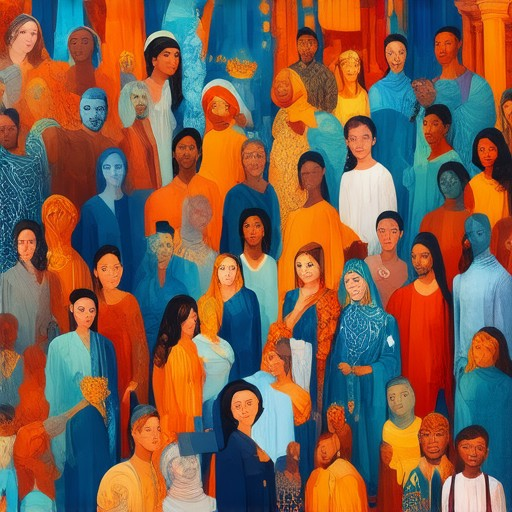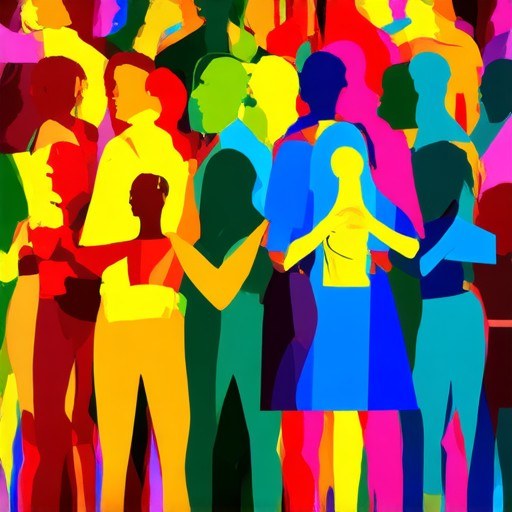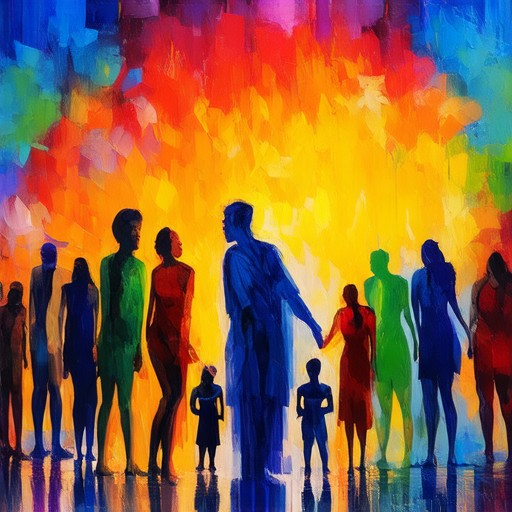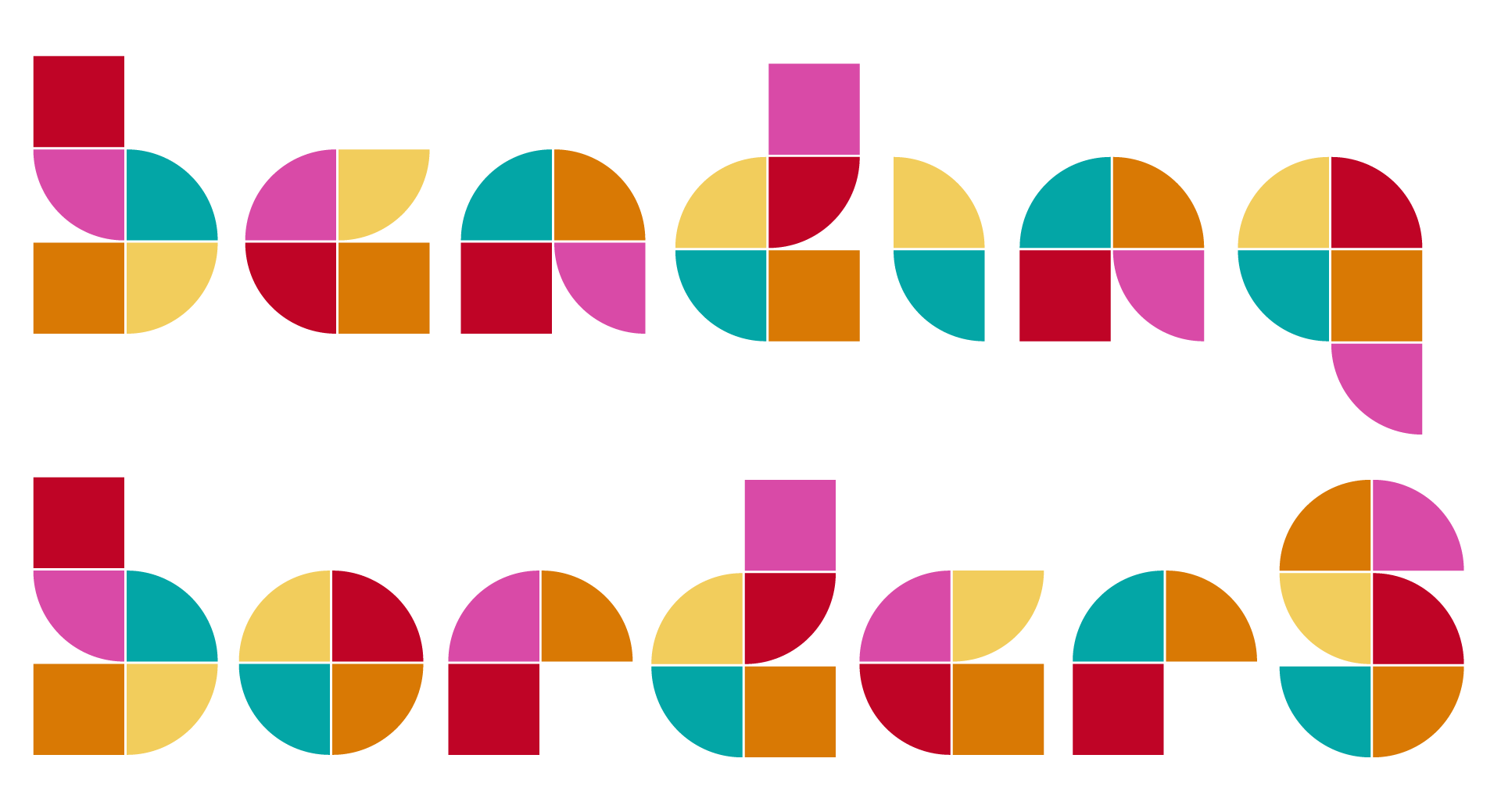In an increasingly interconnected world, understanding and embracing the rich tapestry of human diversity has become more crucial than ever. As global connections strengthen, the importance of exploring human diversity emerges as a cornerstone of fostering empathy, innovation, and collaboration. This exploration delves into the multifaceted nature of human existence, highlighting how differences in culture, background, and perspective contribute to the complex web of life we inhabit. From cultural exchanges to technological advancements, the study of human diversity reveals the intricate ways in which diverse perspectives shape our world. By examining the unique characteristics of various communities, we gain insights into the challenges and opportunities that arise from our differing experiences. This exploration not only enriches our understanding but also underscores the vital role diversity plays in driving progress and building a more inclusive future.
Key Takeaways
– Anthropology is the study of human diversity, offering profound insights into our origins, behaviors, and societal structures.
– Human diversity is explored across four key branches: Cultural, Linguistic, Physical, and Archaeological Anthropology.
– Diversity fosters innovation by bringing varied perspectives to problem-solving and creativity.
– It enriches cultures, promoting appreciation for traditions and driving societal inclusivity.
– Empathy grows through understanding diverse perspectives, bridging cultural divides and nurturing cooperation.
– Diverse groups excel in adapting to challenges, leading to better outcomes in healthcare, education, and more.
– Embracing diversity enhances economic growth and organizational competitiveness in today’s global market.

Exploring Diversity
Exploring diversity involves delving into the multifaceted nature of human existence, encompassing various dimensions such as gender, race, class, citizenship, religion, and sexuality. This exploration examines how these differences and similarities are constructed, challenged, and celebrated in everyday life.
Diversity exploration goes beyond surface-level differences to uncover deeper societal structures and individual experiences. It aims to foster empathy, understanding, and inclusivity by highlighting the unique perspectives and lived experiences of diverse groups.
Key Aspects of Exploring Diversity
- Gender: Examining the social and cultural constructs of gender identity and expression, including non-binary and transgender experiences.
- Race: Investigating racial identities, historical contexts, and societal biases impacting different racial groups.
- Class: Analyzing economic disparities and social stratification, which shape opportunities and life experiences.
- Citizenship: Exploring legal status, migration, and national identity, particularly in multicultural societies.
- Religion: Studying the role of faith in shaping community norms and individual beliefs.
- Sexuality: Examining the spectrum of sexual orientations and the challenges faced by LGBTQ+ communities.
The Importance of Exploring Diversity
Exploring diversity is crucial for fostering inclusive environments, promoting social justice, and driving innovation. By understanding different perspectives, organizations and individuals can create policies and practices that better meet the needs of all members of society.
How to Engage in Exploring Diversity
- Educate Yourself: Learn about different cultures, histories, and experiences through books, articles, and community engagement.
- Be Open-Minded: Approach conversations and interactions with curiosity and respect, embracing differences as opportunities for growth.
- Advocate for Inclusivity: Support initiatives that promote diversity and inclusion in workplaces, schools, and public spaces.
- Listen Actively: Give others space to share their stories and perspectives without interrupting or judgment.
Exploring diversity isn’t just about awareness—it’s about taking action to create a more equitable and harmonious world. By embracing our differences, we unlock new possibilities for collaboration and progress.
For more insights into cultural exploration and global perspectives, visit Bending Borders and explore their diverse travel stories and cultural insights.
Understanding Human Diversity
Human diversity encompasses the vast array of differences that make each individual unique. It is a broad concept that includes variations in race, ethnicity, gender, sexual orientation, age, socioeconomic status, physical abilities, religious beliefs, and cultural backgrounds.
Key Aspects of Human Diversity
- Racial and Ethnic Differences: People come from diverse racial and ethnic groups, each with distinct cultures, traditions, and histories.
- Gender and Sexual Orientation: Diversity extends to gender identities and sexual orientations, recognizing the spectrum beyond binary classifications.
- Age and Generation: Different age groups and generational backgrounds contribute unique perspectives and experiences.
- Socioeconomic Status: Financial and social status play a significant role in shaping individual and group identities.
- Physical Abilities and Attributes: Variations in physical capabilities and characteristics further enrich human diversity.
- Religious and Ethical Beliefs: Diverse religious faiths and ethical systems provide rich tapestries of belief systems.
- National Origin and Migration Histories: The origins and migration patterns of people add layers to our collective diversity.
Examples of Human Diversity in Action
From global festivals celebrating cultural heritage to workplaces embracing inclusivity, human diversity is evident in everyday life. It shapes how we interact, innovate, and grow as communities.
The Importance of Recognizing Human Diversity
Recognizing and valuing human diversity fosters empathy, collaboration, and innovation. It promotes a more inclusive society where everyone feels respected and valued.
Conclusion
Human diversity is a fundamental aspect of our existence. By embracing and celebrating our differences, we create a richer, more compassionate world. Understanding and respecting this diversity is essential for building stronger, more connected communities.

Why is it Important to Study Human Diversity?
Studying human diversity is essential for fostering understanding, empathy, and collaboration across different cultures, societies, and communities. Here are the key reasons why it holds significant importance:
- Cultural Understanding and Empathy: By exploring human diversity, we gain insight into different cultures, traditions, and perspectives. This fosters empathy and reduces misunderstandings, ultimately leading to more harmonious interactions.
- Inclusive Environments: In workplaces, schools, and other institutions, embracing diversity creates more inclusive spaces. Diverse groups bring varied viewpoints, which can lead to innovative solutions and more equitable outcomes.
- Personal Growth: Exposure to different lifestyles and belief systems contributes to personal development. It enhances communication skills and open-mindedness, preparing individuals to navigate an increasingly interconnected world.
- Societal Progress: Addressing systemic inequalities requires understanding the unique challenges faced by different groups. This understanding guides policymakers in creating fairer programs and services.
- Global Interconnectedness: In today’s interconnected world, knowing how different cultures operate is vital for building strong international relationships and avoiding miscommunication.
- Educational Benefits: Incorporating diversity education in curricula prepares future leaders to thrive in multicultural environments, combating stereotypes and promoting tolerance.
- Economic Advantage: Diverse workforces drive innovation and productivity. Companies that value diversity often see improved performance, decision-making, and profitability.
- Environmental Sustainability: diverse perspectives contribute to more inclusive and effective solutions for environmental challenges, ensuring that community needs are adequately addressed.

What is the Study of Human Diversity Called?
The study of human diversity is known as anthropology . Anthropology is the broad field dedicated to understanding the origins, behaviors, and characteristics of human beings, as well as the various societies and cultures they form.
Scope of Anthropology
Anthropology examines a wide range of topics, including:
- Biological aspects of humanity
- Cultural practices and beliefs
- Societal structures and organizations
- Historical developments and changes
- Psychological and emotional dimensions
Branches of Anthropology
Anthropology is divided into several specialized branches, each focusing on different aspects of human life:
- Cultural Anthropology : Studies the customs, languages, and beliefs of different cultures.
- Physical Anthropology : Examines the physical characteristics and evolutionary history of humans.
- Linguistic Anthropology : Investigates the relationships between language and culture.
- Archaeological Anthropology : Studies ancient human societies through artifacts and remains.
Importance of Anthropology
Anthropology provides valuable insights into human behavior, social dynamics, and the development of civilizations. It bridges the gap between the natural sciences and the humanities, offering a holistic view of humanity.
By studying anthropology, individuals gain a deeper understanding of human nature and the complexities of societal change. Its applications extend into fields like psychology, sociology, and even forensic science.
What Are the 4 Fields of Anthropology?
The field of anthropology is divided into four primary branches, each focusing on distinct aspects of human behavior, culture, and society:
- Cultural Anthropology : This branch examines the social and cultural aspects of human life, including customs, beliefs, values, and practices. Cultural anthropologists study how different cultures adapt to their environments and social contexts.
- Linguistic Anthropology : Focusing on the role of language in shaping human societies, this field explores how language reflects cultural values, influences social interactions, and evolves over time.
- Physical Anthropology : Often referred to as biological anthropology, this area studies the human species from a biological perspective. It includes research on human evolution, genetics, and the effects of environment on human biology.
- Archaeology : Archaeology involves the study of ancient human societies through the excavation and analysis of artifacts, remains, and sites. It provides insights into how past civilizations lived and developed.
These four fields collectively offer a comprehensive understanding of humanity’s diversity and complexity, encompassing both historical and contemporary perspectives.

What is the significance of human diversity?
Diversity encompasses the variety of differences among individuals, groups, and societies. It includes differences in race, gender, ethnicity, age, religion, sexual orientation, abilities, and cultural backgrounds. The significance of human diversity lies in its ability to foster innovation, enrich cultures, and promote empathy.
Innovation and Creativity
Diverse perspectives lead to innovative thinking and problem-solving. When people from various backgrounds collaborate, they bring different ideas and approaches to the table. This diversity can lead to breakthroughs in science, technology, art, and other fields. For example, multicultural teams have been shown to generate more creative solutions compared to homogeneous groups.
Cultural Enrichment
Human diversity contributes to a richer, more nuanced understanding of the world. Exposure to different cultures fosters appreciation for traditions, customs, and ways of life that might otherwise be unfamiliar. This cultural awareness can enhance personal growth and contribute to a more inclusive society.
Empathy and Understanding
Diversity helps people develop empathy by encouraging them to see things from others’ perspectives. This understanding can bridge cultural divides and reduce misunderstandings. For instance, learning about different religious practices or social norms can promote mutual respect and cooperation among individuals from diverse backgrounds.
Problem-Solving and Adaptability
Diverse groups often face unique challenges that require tailored solutions. This adaptability can lead to better outcomes in various settings, from healthcare to education. Organizations that value diversity are better equipped to navigate complex situations and meet the needs of a diverse customer base.
Economic Growth and Competitiveness
A diverse workforce brings a wider range of skills and experiences to the table, which can drive economic growth. Companies that embrace diversity are more likely to attract top talent and innovate effectively. This, in turn, can enhance competitiveness in the global market.
Conclusion
The significance of human diversity extends far beyond individual benefits. It drives progress, fosters collaboration, and creates more inclusive communities. By embracing and celebrating our differences, we can build a more equitable and thriving world.




0 Comments